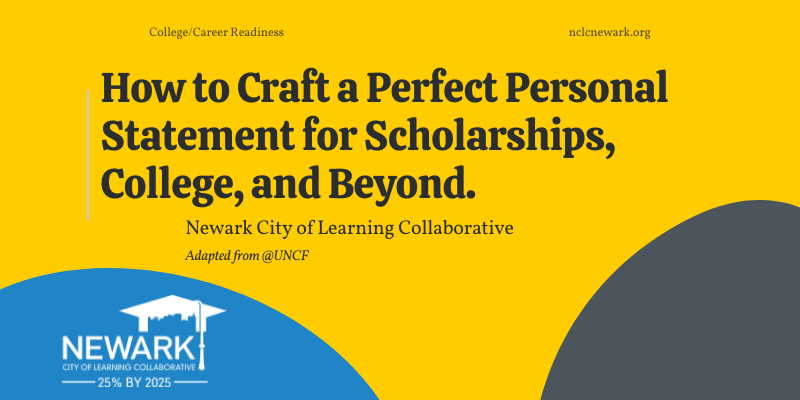
by Nasir Ismail | Feb 17, 2022 | Blog, Myth vs. Fact, Resources
Often after high school or the completion of a GED, former students might find themselves unsure about their career plans. The societal pressure to attend a four-year bachelor’s program, in a time where several workplace environments demand certain post-secondary credentials, can leave students lost when considering a career path. While colleges may provide you exposure to new ideas, paths, and schools of thought, if you believe your career won’t require a four-year degree, then pursue a credential in something else!
Finding What’s Right For You
Several programs exist for the development of your trade skills and hands-on work, but not many people take advantage of these. For example, if you love to cut or style hair, it would be wise to enroll in a barber program to obtain licensure, rather than a bachelor’s program in an unrelated field. That way, you can gain the credentials/license you’ll need to follow your passion and level-up your career! As you will see, the benefits and the reward of going to a two-year trade school program are real, applicable, and sure to leave you with a job! How come, though, people attach a stigma to this kind of education?
Misconceptions
A common myth states that trade school isn’t worth the time or money. While usually only two years long, and for a fraction of the cost of a bachelor’s degree, this claim can not be more wrong! Although, it is true that trade school may not be the right fit for everyone. Generally, professions in the trades require more manual, skilled labor, and can be physically demanding. Professions include carpentry, electrician, plumber, mason, painter, construction worker, welder, and more!
The Facts
Although, there is real value in two-year degrees, credentials, and certificates! The average entry-level NJ Trade School Graduate earns $57,000 after they complete their two-year degree program. This is around the same amount as entry-level Bachelor’s Degree holders earn after four years of school! New Jersey has over 120 trade schools to choose from throughout the state, depending on your location and career preferences, so it shouldn’t be a hassle to find the right program to get you started.
Why You Should Consider Trade School
Trade schools have the unique ability to teach you hands-on, real-world, immediately-applicable skills that will get you employed the second you start looking for work! So for a fraction of the cost, and for half the time that it takes to get a bachelor’s degree, Trade school offers several amazing, competitive benefits.

by Nasir Ismail | Feb 15, 2022 | Blog, Resources
In general, writing about yourself can be a bit difficult. Trying to persuade your audience into believing you’re the best candidate for a position might seem especially daunting. Keeping just a few pointers in mind, learn how you can breeze through your personal statement to convince any reader why you’re the right candidate for the scholarship, job, or admission of your preference!
Choosing a Topic
Like any writing task, the most common part during which people find themselves stuck is simply when deciding on what to write about. To make it easier, some great topics to write about include: Career interests, Overcoming challenges, Community Service, Leadership, and Perseverance.
Use these to inspire how you decide to tell your story. Honesty is compelling. Before choosing a topic, ask yourself the question, “why do I deserve this,” and be sincere in your response. It’s all about how you present yourself.
Questions to Answer While Writing Your Essay
The reader of your essay wants to know why you want to pursue your studies in the major, career, or field of your choice. Questions to answer include: What have been your life’s biggest inspirations and influences thus far? How do these affect the way you see the world? When did you learn about your passion, and what experience do you have with it, if any? What personal qualities about you will improve your chances of success in your anticipated career, field, or major? For any example, always try to offer proof, and apply how your experience relates not only to the outside world, but towards your academic interests as well. Admissions counselors want to make sure that you really want to go to their school.
Telling Your Story
Here are some general guidelines to follow as a framework for your essay:
- Explain what this opportunity means to you.
- Express your interest and motivation overtly.
- Describe how you spend your free time, your hobbies, and your achievements.
- Identify your long-term goals (personal, educational, career).
- Predict how your education will align with your future goals in great detail.
- Make sure your career goals align with the industry you want to work in.
Proofreading
Have a few sets of eyes read over your essay, and make sure that it is coherent, cohesive, and free of any grammatical errors.
Representing yourself through your writing is one of the most important skills that a person can utilize and leverage to make the most of their opportunities. Following these four steps, you can elevate your personal statement to the next level! These strategies will help you ensure that your value never goes overlooked!
Adapted from United Negro College Fund
For additional resources, please visit: www.uncf.org/scholarships

by Daphne S. Alva | Jan 19, 2022 | Student Stories
NCLC Student on the Move: William Ukoh
William Ukoh, Newark, NJ
New Jersey Institute of Technology, Engineering
YLSP Cohort 1
It was only a few years ago that William arrived from Nigeria to start his sophomore year of high school in Newark, New Jersey. As a new student in a new country, he faced many challenges including fitting in and determining his purpose. William said, “as a kid, I would always do what my parents wanted and move on.” His only goal at the time was to go to school, get good grades and settle in. Through his participation, William gained critical decision-making skills.
As William began to adjust to school, he made friends and started getting involved in activities like wrestling. In addition, his curiosity and interest led him to apply to the Newark City of Learning Collaborative’s (NCLC) college access and preparation program, Youth Leadership and Success Project (YLSP). Through YLSP, William and the other students in his cohort were able to learn more about the college application process, meet advisors/educators, participate in social justice-based initiatives, and gain insight into the college experience.

This experience was exactly what William needed at the time. “YLSP was the first program that I attended and one that I will never forget. It really taught me about the college life and about being a good person in general. I see things very differently now,” said William. By getting early exposure to college, William and his peers were able to work on projects and assignments that would best prepare them to make decisions for college, and in general. Through various modules and reflection opportunities, William was able to gain greater insight into what he was most looking forward to in college, why, and how to get there.
Participating in YLSP not only helped William sharpen his social and leadership skills, but it also helped him determine his purpose and goals in life. William said, “The future I’m trying to build isn’t for my parents, it’s for me. This is something that I have to create and the only way that can happen is if I put in the effort and take my life seriously.” Through his active participation in the YLSP program, William became more aware of the steps he needed to take to achieve the goals he has set for himself.
The YLSP program offered William many resources including support through the college application process. William spent some time ranking his top college choices, researching what they had to offer, and planning how to apply and afford his education. William started his college journey at Rutgers University-Newark undecided but after deciding on his major of Civil Engineering, he needed to make an important decision. He was either to transfer to Rutgers University-New Brunswick to pursue his career or transfer to New Jersey Institute of Technology. After evaluating his options and referencing the decision-making skills he practiced in YLSP, he decided to transfer to New Jersey Institute of Technology (NJIT) because it was closer to home and more affordable for him.
 His journey at NJIT began virtually during the height of the COVID-19 pandemic, but William is now transitioning back to in-person classes. One of his biggest challenges since starting college was his responsibility to do things independently. Between coordinating his commute and balancing challenging classes, William still refers to all the lessons that his family and the Youth Leadership and Success Project (YLSP) taught him. William is now looking to get involved in the Wrestling Club at NJIT and credits his experience in YLSP for his interest in staying involved and active.
His journey at NJIT began virtually during the height of the COVID-19 pandemic, but William is now transitioning back to in-person classes. One of his biggest challenges since starting college was his responsibility to do things independently. Between coordinating his commute and balancing challenging classes, William still refers to all the lessons that his family and the Youth Leadership and Success Project (YLSP) taught him. William is now looking to get involved in the Wrestling Club at NJIT and credits his experience in YLSP for his interest in staying involved and active.
NCLC recognizes the value that YLSP and other student support programs bring to students who are looking to pursue college. Our aim is that all students from Newark gain the opportunity to access and complete post-secondary education. We hope to inspire more Newark students like William and instill confidence and readiness for their college experience.
“I am most proud of myself for not giving up, not being lazy and not trying to find excuses to not do something,” says William. His desire for Newark Students is for them to understand that going to college is a choice they make for themselves, and for no one else. If students decide to go to college, they must uphold the accountability that it requires for them to be a successful student. “College is there for you, but you have to be the one to ask for help and take initiative.”





 His journey at NJIT began virtually during the height of the COVID-19 pandemic, but William is now transitioning back to in-person classes. One of his biggest challenges since starting college was his responsibility to do things independently. Between coordinating his commute and balancing challenging classes, William still refers to all the lessons that his family and the Youth Leadership and Success Project (YLSP) taught him. William is now looking to get involved in the Wrestling Club at NJIT and credits his experience in YLSP for his interest in staying involved and active.
His journey at NJIT began virtually during the height of the COVID-19 pandemic, but William is now transitioning back to in-person classes. One of his biggest challenges since starting college was his responsibility to do things independently. Between coordinating his commute and balancing challenging classes, William still refers to all the lessons that his family and the Youth Leadership and Success Project (YLSP) taught him. William is now looking to get involved in the Wrestling Club at NJIT and credits his experience in YLSP for his interest in staying involved and active.